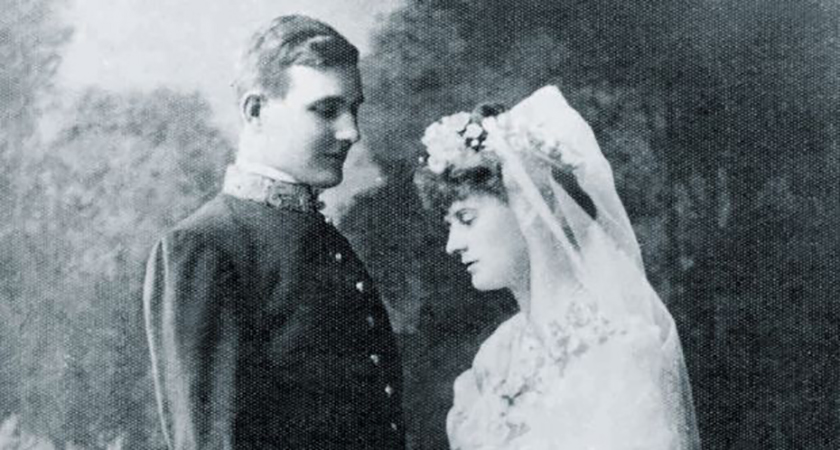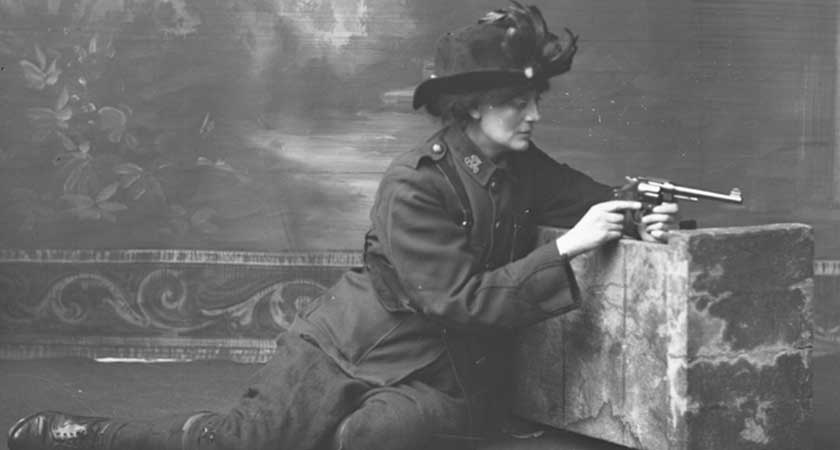“Dress suitably in short skirts and strong boots, leave your jewels and gold wands in the bank, and buy a revolver.”
These were the words offered by Constance Georgine Markievicz to the women of Ireland considering taking up arms in the ill-fated Easter Rising of 1916.
The revolutionary was destined to become one of the most well-known and admired women in all of Irish history, setting records and shattering ceilings throughout her life, but before she was known as the trailblazing politician and activist, she was Constance Gore-Booth, childhood friend of W B Yeats and the daughter of a rich Sligo landlord who provided food for the hungry during the famine.
Despite being born into wealth in 1868, the Sligo woman fought for the working people, the poor and the marginalised who were not afforded the same priviliges as herself, resulting in her losing much of her money throughout her life in order to continue her work.
She held deeply-rooted socialist ideals and later became a voice for the women's suffragette movement-- possibly in part due to the fact that she was unable to go to art school in Ireland as most would only accept men, instead being forced to move to London where she eventually met her future husband, Count Casimir Markievicz.
 Constance with her Polish husband Casimir Markievicz on their wedding day.
Constance with her Polish husband Casimir Markievicz on their wedding day.Back in her home country, by 1908 the Countess had become actively involved in national politics, particularly in the fight for Ireland's freedom from the British Empire.
She joined Sinn Féin and Maud Gonne's women's revolutionary movement Inghinidhe na hÉireann (Daughters of Ireland), and lent her support to the British suffragette movement-- including, once, by using her wealth toprocure and drive a horse-drawn carriage down the street in Manchester to draw attention to the movement.
The Countess also co-founded her own paramilitary nationalist organisation which instructed teenage boys in the use of firearms-- but was almost expelled in the organisation's first meeting due to being a woman.
Her first arrest came in 1911, as she protested at an Irish Republican Brotherhood demonstration against the visit of King George V to Ireland-- Markievicz threw stones at royal portraits, handed out Irish Republican leaflets and burned the British flag.
The great rebellion of Easter 1916 saw Constance Markievicz take up arms in St Stephen's Green, supervising the barricades and fighting alongside other Irish men and women for Ireland's freedom.
 Constance Markievicz (Picture: National Library of Ireland)
Constance Markievicz (Picture: National Library of Ireland)When the rebellion failed, the Countess was taken with the other political prisoners to Kilmainham Gaol, where she was put on trial and pleaded not guilty to the charge of assisting the enemy, saying instead that she "went out to fight for Ireland's freedom and it does not matter what happens to me".
Constance Markievicz was sentenced to death, but was spared the sentence because she was a woman. To this, Markievicz famously responded "I do wish your lot had the decency to shoot me".
Countess Constance Markievicz went on to become the first woman ever elected to the British House of Commons, but, as Sinn Féin continues to do today, refused to take her seat in Westminster.
She was a member of the first and second Dáil of Ireland, years before women were even allowed to vote in the country, and became the first ever Irish woman chosen to be a Minister. She was the only woman to hold that position until 1979.
After a lifetime of activism, rebellion, imprisonment and trailblazing, Countess Markievicz died at the age of 59 whil undergoing treatment for appendicits.
She passed away in a public ward, having given away her wealth to improve the lives of the many.

